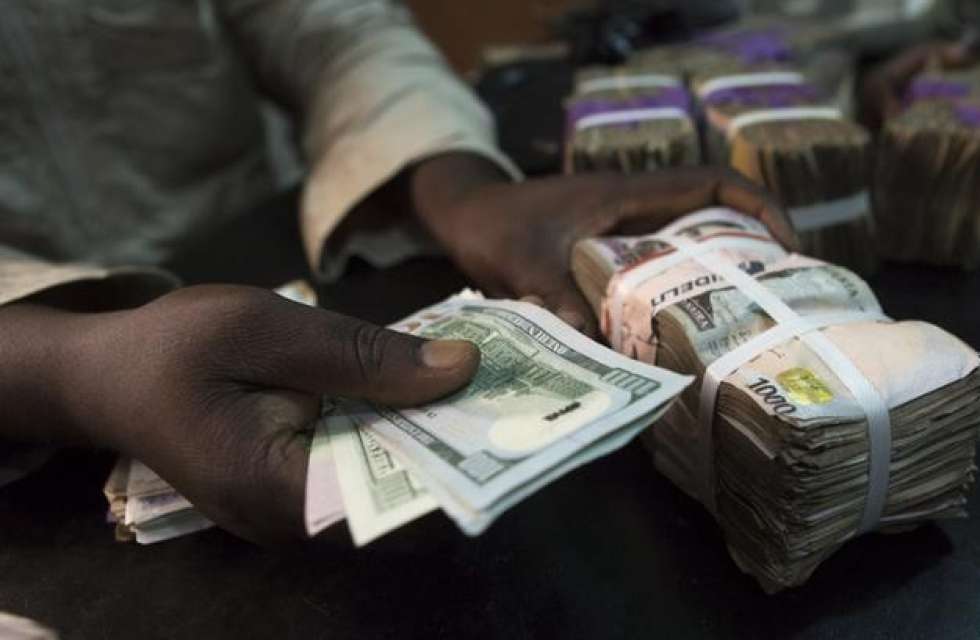Data from FMDQ securities showed the exchange rate of the Naira to the United States Dollar further depreciated at the Investors and Exporters (I&E) by 17 kobo or 0.04 per cent to settle at N416.67/$1 as against N416.50/$1 it ended on Monday.
The depreciation of Naira happened despite less pressure at the market as participants on Tuesday transacted $74.56 million compared with the $125.1 million achieved a day earlier.
This indicated that the turnover for the trading session went down by 40.4 per cent or $50.54 million.
It was a similar performance at the interbank market for Naira as it depreciated to N417.25 as against N417.05 it exchanged on Monday data from CBN website showed.
READ ALSO: External reserves suffer another depletion as CBN struggles to defend Naira
But there was respite against the Pound Sterling as it appreciated by 54 kobo to N565.42/£1 from the previous day’s N565.96/£1.
The Naira also appreciated against the Euro by N1.66 to close at N476.75/€1 compared to N478.41/€1 it finished on Monday.
But the black market experienced a heavy fall as news of the IMF calling for further devaluation spread.
Merchants at the black market from Tuesday afternoon to the evening increased the rate for those looking to buy dollars to N574 from N565/$ it exchanged a day earlier.
Meanwhile, IMF advice for the Naira exchange rate to be removed was contained in its Article IV consultation report on Nigeria, published on Monday.
READ ALSO: Naira suffers more devaluation against Dollar
According to the Fund’s statement on the report, the IMF wants the official exchange rate to be removed to make way for a unified and market-clearing exchange rate to help strengthen Nigeria’s external position, taking advantage of the current favourable conditions.
The IMF noted that exchange rate reforms should be accompanied by macroeconomic policies to contain inflation, structural reforms to improve transparency and governance, and clear communications regarding exchange rate policy.

 Football1 day ago
Football1 day ago
 Business1 week ago
Business1 week ago
 Business7 days ago
Business7 days ago
 Education1 week ago
Education1 week ago
 Crime1 week ago
Crime1 week ago
 Covid-197 days ago
Covid-197 days ago
 Business1 week ago
Business1 week ago
 Latest5 days ago
Latest5 days ago

